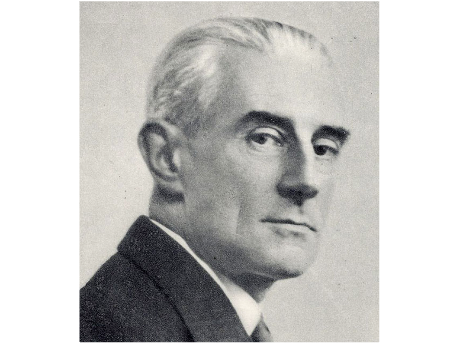


French composer among the most influential of the 20th century, his major orchestral works including "Bolero", "La Valse" and "Daphnis and Chloe".
Ravel was born to a father who was a Swiss inventor and a mother of Basque origin, which had a great impact on his music style. At the age of 14 he was admitted at the Paris Conservatory, where he was taking lessons with Gabriel Fauré whom he admired. However, Ravel was very outspoken and his unconventional thinking often brought him into conflict with the conservative administration of the institution, from which he was twice suspended. It is believed that his failure to win the conservatory's main composition prize (the Prix de Rome), in five attempts between 1900 and 1905, causing a press scandal, was due to his conflict with the conservatory.
Ravel created rich, tuneful and very engaging music. Influenced by French Baroque, American jazz and Spanish folklore music (due to his Spanish origins), his music is considered playful, full of innocence and clarity. Although he composed fewer works than most of his contemporaries, he was very meticulous in his compositions, paying extreme attention to details.
He was especially gifted as an orchestrator to such degree that he was orchestrating other composers' work, including his 1922 version of Mussorgsky's "Pictures at an Exhibition".
In his personal life, Ravel remained a complete mystery. “The only love affair I have ever had was with music,” he once said.
Ravel admired Debussy and considered him a "genius of great individuality". The two men were friends and had a mutual respect although Debussy was about 20 years older. However, the two men ceased to be on friendly terms in the beginning of the 1900s for various reasons, including personal. The result was the creation of two rival camps, as each composer had his own fans and supporters, which were disputing for details concerning the style and influence of each composer's work.
In 1932, his injury in an automobile accident marked his physical decline that resulted in memory loss and an inability to communicate. He died in 1937, following brain surgery.
In spite of leaving behind important compositions, Ravel is unfortunately remembered for an orchestration of another composer's work and not so much for his own works.